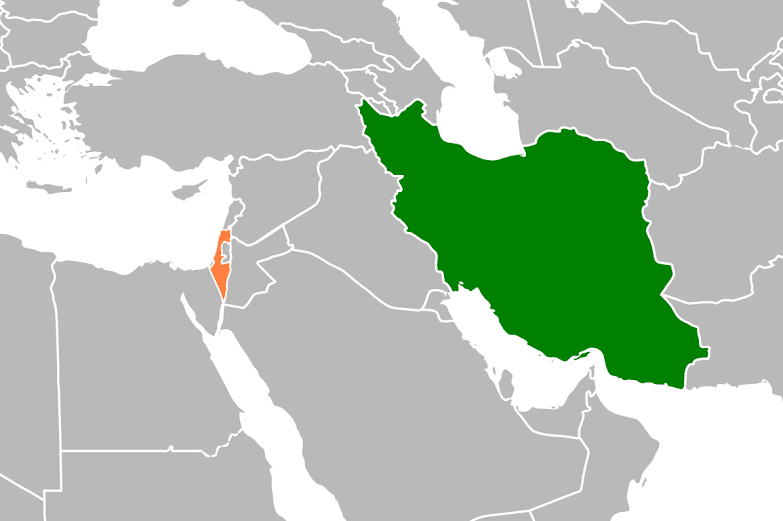TLF Exclusive: Rising Iranian Nationalism Amid Crisis. Voices from Tehran, Tabriz, and Isfahan Speak Out
In the shadow of escalating conflict and just hours before a nationwide internet shutdown plunged Iran into digital silence, three anonymous sources—a Kurdish Iranian from Isfahan, an Azeri Iranian from Tabriz, and a woman of Persian descent from Tehran—shared harrowing accounts with the Levant Files. Their messages, conveyed amid heightened security risks, paint a vivid picture of a nation gripped by desperation and rage. Yet, beneath the turmoil, a resurgent wave of Iranian nationalism is taking root on the streets of major cities as citizens grapple with foreign aggressions, governmental failures, and an uncertain future.
The sources, speaking from diverse ethnic and regional perspectives, converge on a shared sentiment: a fierce defense of Iranian sovereignty, even as trust in the clerical regime wanes. This nationalism, they assert, is not a blanket endorsement of the status quo but a complex response to external threats, including recent strikes attributed to Israeli actions. As one source from Tehran poignantly stated, "Amid the chaos, we are united in our outrage, not for the regime, but for our homeland."
From Tehran, the Persian-origin woman, a veteran of women's rights demonstrations, offered a deeply personal critique of both the regime and foreign interventions. Having suffered profound losses under the current regime—including the death of an uncle and the erosion of her dignity—she made clear her lack of allegiance to the clerical authorities. "I have no reason to support them normally," she emphasized. However, the recent escalations have shifted her stance. Condemning what she described as Israeli aggression in Gaza and within Iran, she highlighted the human cost of targeted strikes. "They claim to have killed regime representatives, but in reality, they are striking military sites alongside innocent people—babies, relatives, and citizens in their beds," she said. Her words underscore a growing resentment toward external powers, echoing historical grievances. "No foreign entity has the right to alter our regime," she asserted. "Change must come from us, the citizens. The USA and UK attempted coups in the past century and failed; they will fail again."
In Tabriz, the Azeri Iranian source echoed a similar disillusionment with the regime, focusing on the immediate hardships faced by civilians. Amid daily strikes and a lack of adequate defenses—such as reliable alarm systems or shelters—residents are struggling to access necessities. "Our government has failed to protect us," he lamented, noting a broader erosion of trust. When probed about the potential for Azeri communities to pursue autonomy or alternative paths, perhaps in collaboration with neighboring Azerbaijan and Turkey, he did not dismiss the idea. "All scenarios are on the table now, and we will discuss them with our brothers abroad," he said. Yet, he prioritized unity in the face of adversity. "Our first aim is the protection of our homeland. We don't want a failed, beaten, or divided Iran—this is our common land. As Azeris, we seek a framework that ensures security and prosperity, but division is not our immediate goal."
From Isfahan, the Kurdish-Iranian source expressed profound pessimism about the road ahead, framing Iran's predicament in stark terms. "There are two possibilities: a new, interim, and likely unfavorable agreement on our nuclear program, or the complete collapse of our country," he said, describing both outcomes as detrimental to Iran's diverse populace, including Persians, Kurds, Balochs, Zoroastrians, Bahais, and Azeris. The first scenario, he argued, would entrench a weakened regime, perpetuating oppression, while the second risks a chaotic downfall akin to Iraq or Libya. Preferring a more hopeful path, he advocated for "a new, democratic, and decentralized Iran" that preserves national unity. "We love our country, after all," he added. However, acknowledging the harsh realities, he supported exploring alternatives, including the recent statements from the Party for a Free Life in Kurdistan (PJAK), which calls for greater Kurdish autonomy. "If a united, democratic Iran is not possible, we must seek different avenues," he concluded.
These accounts, emerging from the heart of Iran's urban centers, reveal a nation at a crossroads. The surge in nationalism appears to be a unifying force against external aggressions, yet it coexists with ethnic tensions and calls for reform. As Iran navigates this precarious moment, the voices of its citizens underscore a resilient spirit: a demand for self-determination in the face of both internal failings and international pressures. With the internet blackout now in effect, the full scope of these sentiments may remain shrouded, but they serve as a stark reminder of the human cost of conflict and the enduring quest for dignity and sovereignty.
